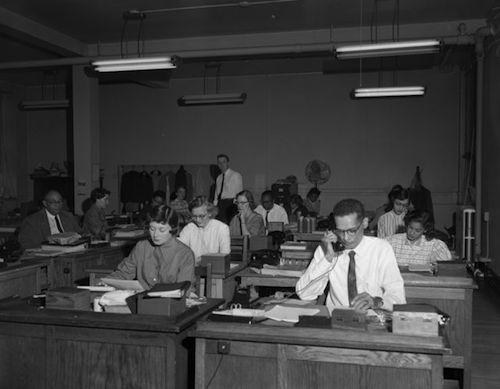Perhaps the first thing to know when hiring people is that salary and benefits are not number one on their list.
If they are, we probably don’t want them.
Study after study undertaken by human resources specialists tell us about potential employees’ priorities.
-
They value the opportunity to work as part of a winning team that is making a difference.
The test for this is values. Do the applicant’s personal values line up with the company’s values? Does your business vision and/or your mission light their fire?
-
Applicants value the opportunity to learn, grow and advance.
No-one wants a “dead-end” job and almost everyone is enlivened by the opportunity to learn and improve their capabilities.
-
They are interested in salary and benefits.
The second thing to know is that intangibles are as important, if not more important, than what we can see and measure.
Someone may be a perfect match for the skill set we need, but if they have poor people skills and they are not a team player, it is a difficult and painful process to let them go.
Don’t restrict yourself to the references they give you. We know they will be favorable. Talk to as many people as possible who have experience with them in a working situation.
If they were a great team player, if the people who worked with them were genuinely sorry to see them go and if they would have them back in a minute, chances are we have found someone worthwhile.
Third—do you like them?
Line up opportunities to spend time with them outside the formal interview process, where you can get to know them up close and personally.
Particularly in small companies, it is crucial that you respect and admire the people with whom you work. If you already have staff, have them spend time with the applicant as well—preferably in a low key, social setting.
I have rarely seen a small business set up a new employee adequately. It’s “throw them into the deep end and see how they swim.” We can put the time in on the front end proactively or we can have them eat up our time while we train them in “real time” correcting their mistakes.
Here is a quick formula for setting up a new employee to succeed.
- Have them learn how to use all the equipment, software, office reports and procedures, etc. that are essential to their job before they “officially” begin the job.
- Have them go to lunch with every single person who is critical to their job “accountabilities.” During the time they spend with them, ask them to interview these folks and find out how best to interact with them.
- Be very, very clear with them about their accountabilities—not what they are tasked to do, but the results they are expected to produce. Tell them they will be “in training” and not accountable until they come to you and say, “I’m ready.” You will probably want to put a hard stop date on this process. Depending on the size and complexity of the job, it can take anywhere from a couple of days to two weeks.
- Set up a regular time to meet with them to assess their progress and provide any coaching/mentoring they may need, and be consistent and straight-forward in holding them accountable for their productivity.
In terms of how to deal with employees effectively once they are hired, I recommend you read my blogs: “Taking the B.S. out of Business” and “There are 4 (and only 4) Responses to any Request.”
Beyond that, Ken Blanchard’s book, “The One Minute Manager” may be the best book ever written on the subject of management. He has two tips that are simple to put into use and highly impactful.
- “Catch them doing something right.”
Acknowledge and appreciate your people not just for what they do, but for the intangibles they bring to the business. “You did a great job on the XYZ project and I really appreciate how dependable you are and that I can trust you to do a thorough job.”
- Learn how to correct mistakes without leaving the employee in the dumpster for two weeks.
Tell them what their mistake was specifically and do it without assessing blame—just the facts. Make sure they understand why it was a mistake and perhaps what it cost the business. Give them a chance to tell their side of the story and be a good listener. They tried hard, did their best and they probably regret the mistake more than you do. Then, ask if you can count on them to not repeat the mistake.
Finally, be prepared with an acknowledgment for something they have done well recently. After the conversation and as they are walking out the door: “Oh, by the way, you did a really nice job with this ‘other thing.’ I know that is the kind of work you are capable of doing all the time. Thanks. Overall, you’re doing very well.”
~
~
~
Love elephant and want to go steady?
Sign up for our (curated) daily and weekly newsletters!
Apprentice Editor: Bronwyn Petry / Editor: Emily Bartran
Photo: Wikimedia Commons











Read 0 comments and reply